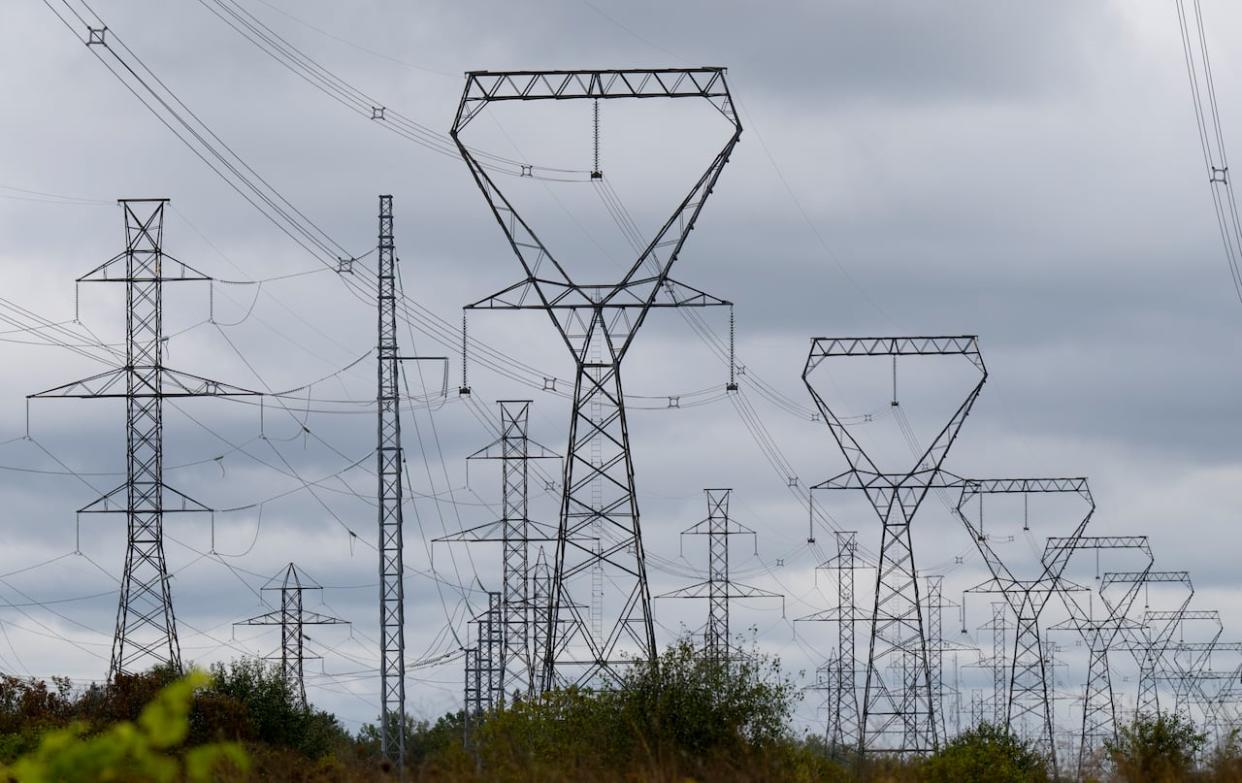Ottawa's plan to green the electrical grid will mean gain and pain for Nova Scotia, says federal analysis

Canada's plan to have an economy with net-zero greenhouse gas emissions by 2050 will result in an overall cost of $3 billion to the Nova Scotia electricity system, according to figures from Environment and Climate Change Canada.
The total cost to the province over 27 years will be $6.1 billion, but Ottawa says federal tax incentives, grants and loans will cut those costs in half and eventually overall household energy costs will be lower.
Still, the cost-benefit analysis accompanying the draft clean electricity regulations unveiled this month confirm that Nova Scotia is expected to bear some of the highest costs for decarbonizing the grid.
In 2022, Nova Scotia Power got 57 per cent of its electricity by burning coal, oil and natural gas.
The regulations would cap annual carbon emissions from electricity generating units at 30 tonnes per gigawatt hour in 2035. Nova Scotia power plants currently produce about 557 tonnes per gigawatt hour.

Federal Environment Minister Steven Guilbeault pictured earlier this month when the federal government announced new regulations to get Canada's electricity grid to net zero by 2035. The federal government's goal is to make Canada's entire economy net zero for greenhouse gas emissions by 2050. (CBC)
"For provinces that currently rely more heavily on emitting technology to generate electricity, higher incremental rate increases are expected," the Environment and Climate Change Canada analysis says.
Modelling estimated that residential rates in Nova Scotia would increase by 3.9 cents per gigawatt hour, compared to current rates, when costs peak in 2040.
"For example, average annual incremental electricity payments at the residential level could be $279 to $485 higher in Nova Scotia in 2040 compared to the baseline, but only $185 to $322 higher in 2050," the ECCC assessment says.
Will create savings in fuel costs
The analysis also factors in savings from avoided maintenance, refurbishment and fuel costs. It predicts Nova Scotia will save $1.9 billion in fuel between now and 2050.
The recent Nova Scotia Power 14 per cent rate increase was due in large part to fossil fuel prices.
The estimates assume power rates already reflect the cost of meeting the Nova Scotia government goal that 80 per cent of electricity is generated from renewable sources by 2030.
So far the province's Progressive Conservative government has not said how it will achieve its legislated target.
The preferred option of Ottawa and Nova Scotia Power is the Atlantic Loop, a proposed $6-billion upgraded regional transmission system that would bring hydroelectricity from Quebec into Nova Scotia.
Premier Tim Houston has so far rejected the Atlantic Loop saying it is too costly for ratepayers who would have to repay federal loans.
'There is no plan' from Nova Scotia government
The impasse concerns environmentalist Brenna Walsh of the Ecology Action Centre in Halifax.
"There is no plan. There isn't any further detail from the province. I think they're in active conversation with Nova Scotia Power," Walsh told CBC.

Environmentalist Brenna Walsh works with the Ecology Action Centre in Halifax. (Paul Withers/CBC)
She says Ottawa and Nova Scotia are both committed to greening the grid but a solution is needed.
"If there are those alternative plans to the Atlantic Loop that are cost effective, we'd really like to see some of the details."
Response from NSP, province
The reaction has been muted from both the province and Nova Scotia Power.
Both sent statements to CBC saying they are reviewing the draft.
Nova Scotia Power said it welcomed promised regional consultations and "we plan to engage fully in those when they come to Nova Scotia."
"Having clarity on Canada's clean electricity regulations, including the cost impacts of the transition, is an important step in achieving the clean energy future that we are all working towards," NSP spokesperson Kathyne O'Neill said.
Nova Scotia Department of Resources and Renewables said, "We are concerned that the federal government's analysis has once again shown that the cost impacts will be highest in the country for Nova Scotians with very little greenhouse gas reductions."
Environment Canada disputes that characterization saying the emission cap will result in a reduction of 22 megatons of greenhouse gases between 2035 and 2050 in Nova Scotia "and there could be much more, depending on the level of electrification of the province in the future," according to spokesperson Gabrielle Lamontagne.
As of 2020 Nova Scotia emits 14 megatons annually, the department says.
MORE TOP STORIES


